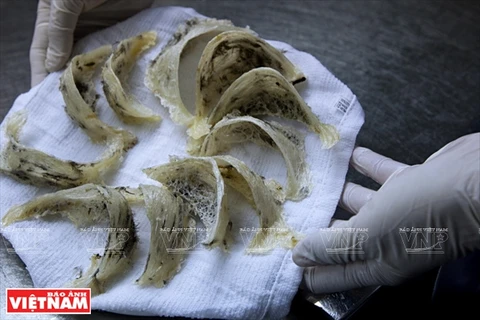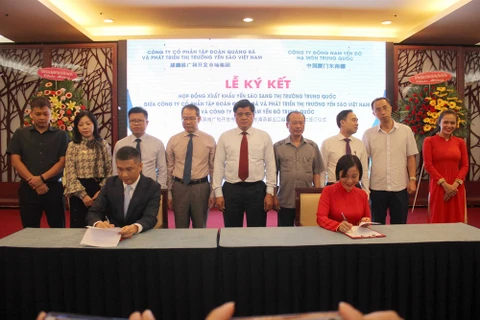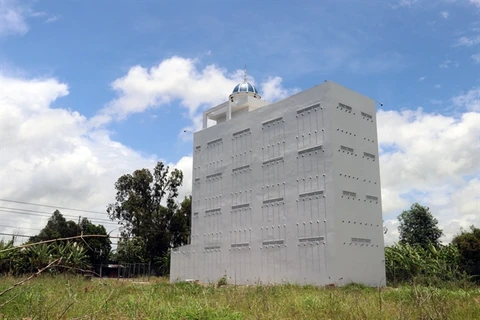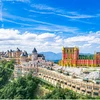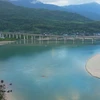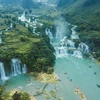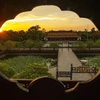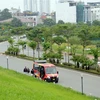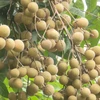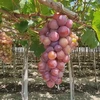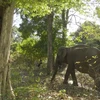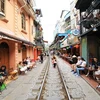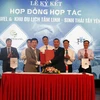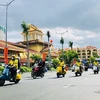Kien Giang (VNA) – The Mekong Delta province of Kien Giang is studying the building of a new tourism product on the basis of swift raising in close association with environment protection so as to attract more tourists, thus diversifying its tourism products.
Over the past 10 years, swift raising has been developing very well and bringing about high economic efficiency.
Kien Giang is rich in potential to develop swift raising with advantages like suitable environment, and diverse and rich feeds. The trade is bringing about relatively high economic efficiency. If successful, each 100 square metres can yield from one to two kilogrammes of nestles.
From 2007 to the end of 2013, the whole province counted only 270 households engaged in swift raising with a combined area of 48,000 square metres. But the number of the swift raising households at the end of 2019 was 2,245 who harvested about 12,700 kg of nestles. The largest localities doing the job are Rach Gia city with 672 households and Hon Dat district with more than 400.
However, swift raising in Kien Giang is spontaneous, that is why it fails to meet requirements on environment hygiene, eco safety, noise, diseases, etc., thus adversely affecting the daily life activities and health of locals. Many households make full use of their housing or expand their space to attract swifts.
Provincial relevant authorities have been implementing a zoning plan to effectively, safely and stably utilise the economic potential from swift raising in the locality. They are tightening the management of the trade and banning the building of new spaces for swift raising in a number of key localities. Organisations and individuals wishing to build spaces for swift raising must obtain licenses and make report on environmental impact assessment.
On the other hands, authorities also ban and show a strong hand against those activities that adversely impact or cause harm to the natural swifts, and work out concrete provisions on attracting swifts and food safety relating the processing of their nestles.
According to Nguyen Xuan Quang, director of the Planning – Research and Development Office of the Kien Giang Tourism Department, the building of concentrated areas for swift raising as well as the model of the spaces for the trade in association with the development of ecotourism will create an attraction for visitors, thus helping diversify and enrich the province’s tourism products.
The official added that it is necessary to study the building of the tourism form of city tour on the basis of connecting Rach Gia city, Hon Dat district and Kien Hai island district, as each locality possesses typical potential for tourism development, especially those sites housing cultural and historical heritages.
Tourism products based on swift raising in association with tours can help visitors gain interesting experiences when they come to Kien Giang. The contents should be carefully built and prepared so as to inspire curiosity from visitors.
In the Rach Gia – Hon Dat – Kien Hai city tours, visitors will be introduced to the quality of swift nestles, guided on how to differentiate from the real and the fake, and briefed on products from swift nestles, domestic trademarks, as well as the impact of swift nestles on human health. They will have an insight on the development stages of the bird.
In the time to come, Kien Giang tourism authorities will develop more sites in swift raising villages with a view to helping develop the Rach Gia – Kien Hai – Hon Dat tourism region./.

